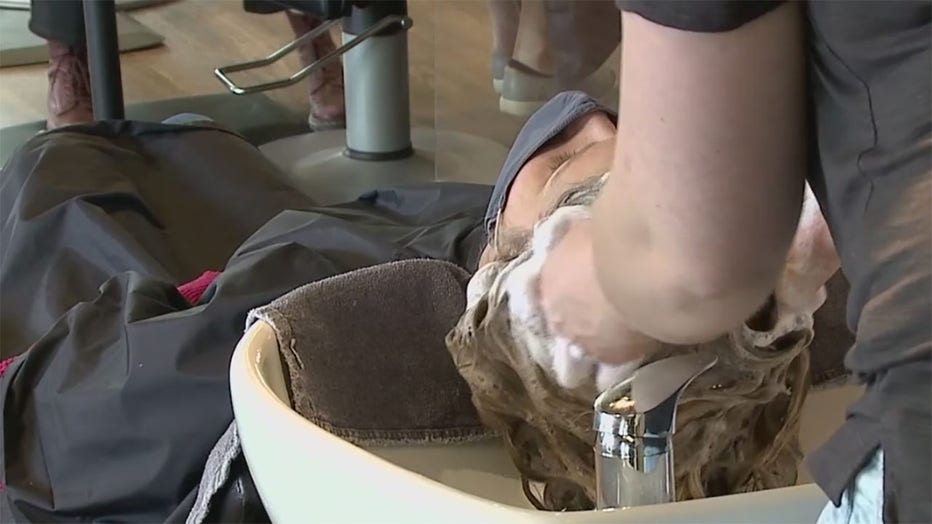Dermatologists see increased hair loss in recovered COVID-19 patients
Dermatologists see increased hair loss in recovered COVID-19 patients
UW Health dermatologists revealed on Wednesday, March 10 they are seeing increased cases of hair loss in patients who have recovered from COVID-19.
MADISON, Wis. - UW Health dermatologists revealed on Wednesday, March 10 they are seeing increased cases of hair loss in patients who have recovered from COVID-19.
Dr. Apple Bodemer, an integrative dermatologist at UW Health, says the influx started in the summer of 2020 and increased as COVID-19 surged around Dane County in the fall.
"Prior to COVID-19, I was seeing two to four hair loss patients per month. Recently I have been seeing up to five or six a day," said Bodemer in a news release. "The type of hair loss associated with the physical and emotional stress related to COVID-19 is called telogen effluvium."
Telogen effluvium, Bodemer explained, commonly occurs after a physical or psychological stressor -- such as a car accident, having a baby, loss of a loved one and recently COVID-19.

At Tailored Salon in Milwaukee, hair is everywhere. However, some recent clients are experiencing telogen effluvium.
"Even when we just shampoo at the shampoo bowls we can notice it," co-owner Laura Graven said.
Graven said she notices it in about 50% of clients -- including herself.
"I could feel it when I just would work my hands through my hair and I would feel it through my fingertips," Graven said.

Tailored Salon in Milwaukee
Bodemer said hair is a non-essential structure so when the body is under stress, hair growth is put on hold. Typically, it starts to regrow about four to six months later and that is when shedding (hair loss) happens. The hair loss is actually good news because it means new hair is starting to grow within the follicle pushing the old resting hair out.
Bodemer says significant hair loss, up to 50%, is not uncommon. Hair will grow back in six to 12 months, but it can still be upsetting for patients.
FREE DOWNLOAD: Get breaking news alerts in the FOX6 News app for iOS or Android
Bodemer said Rogaine is an option but that could take several months to kick in and hair might be growing back naturally at that point.
If hair loss persists for six months or more, you should see your doctor because telogen effluvium can also be caused by thyroid disease, iron deficiency, or other undiagnosed medical conditions.
Man who was Milwaukee County’s 1st COVID case part of MU long haul study
There are still a lot of unknowns about how COVID-19 affects you in the long-term.

